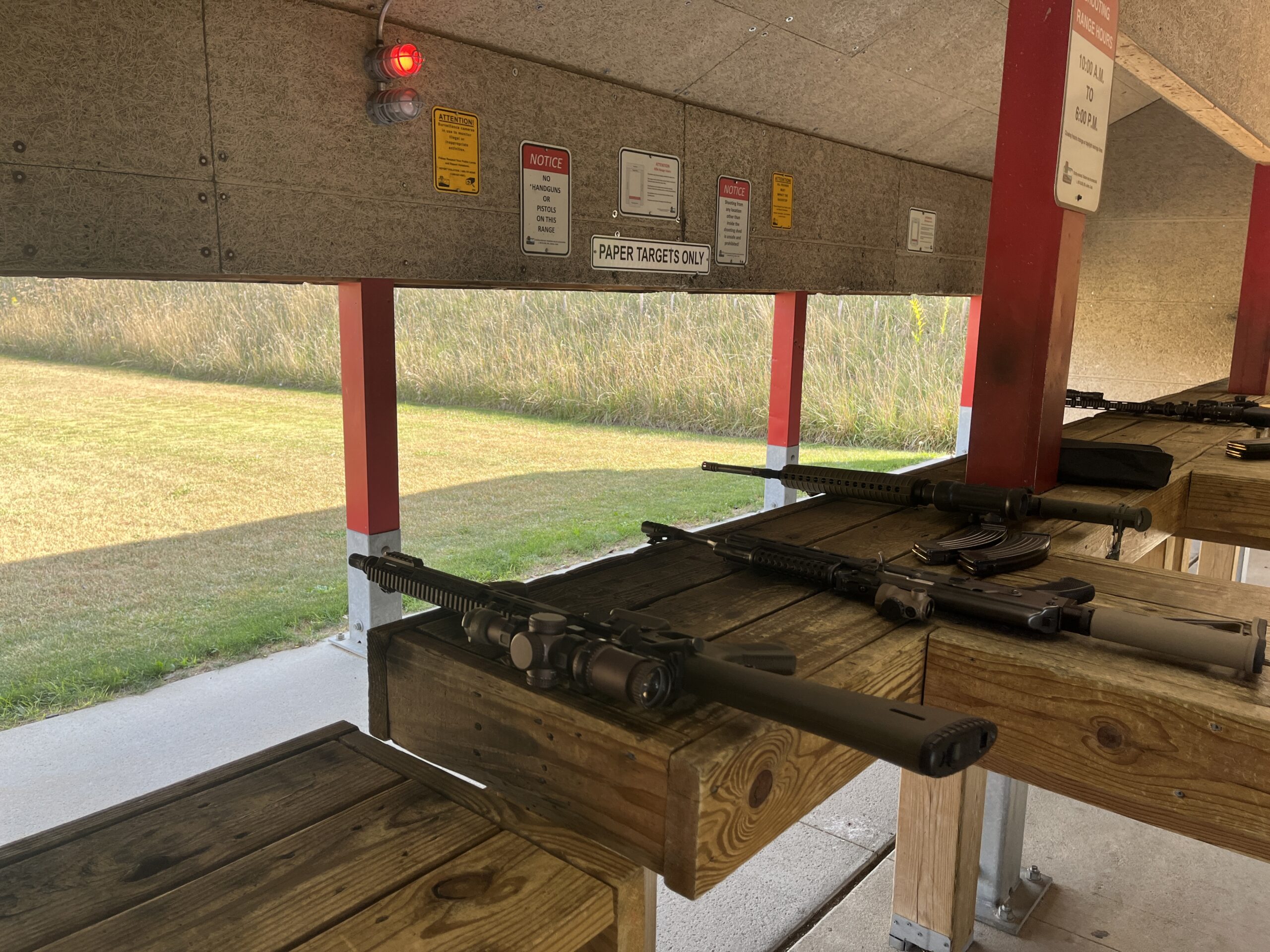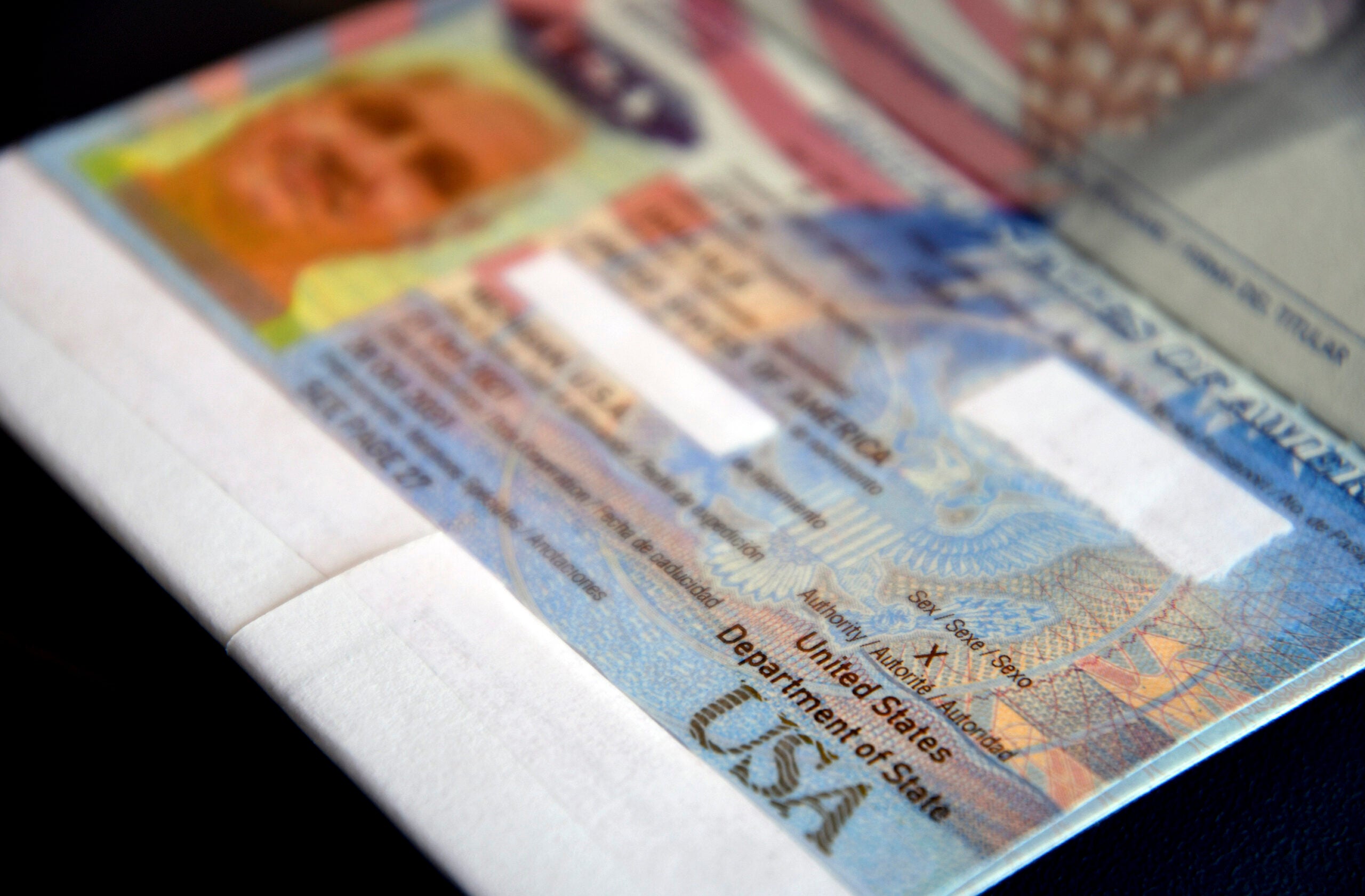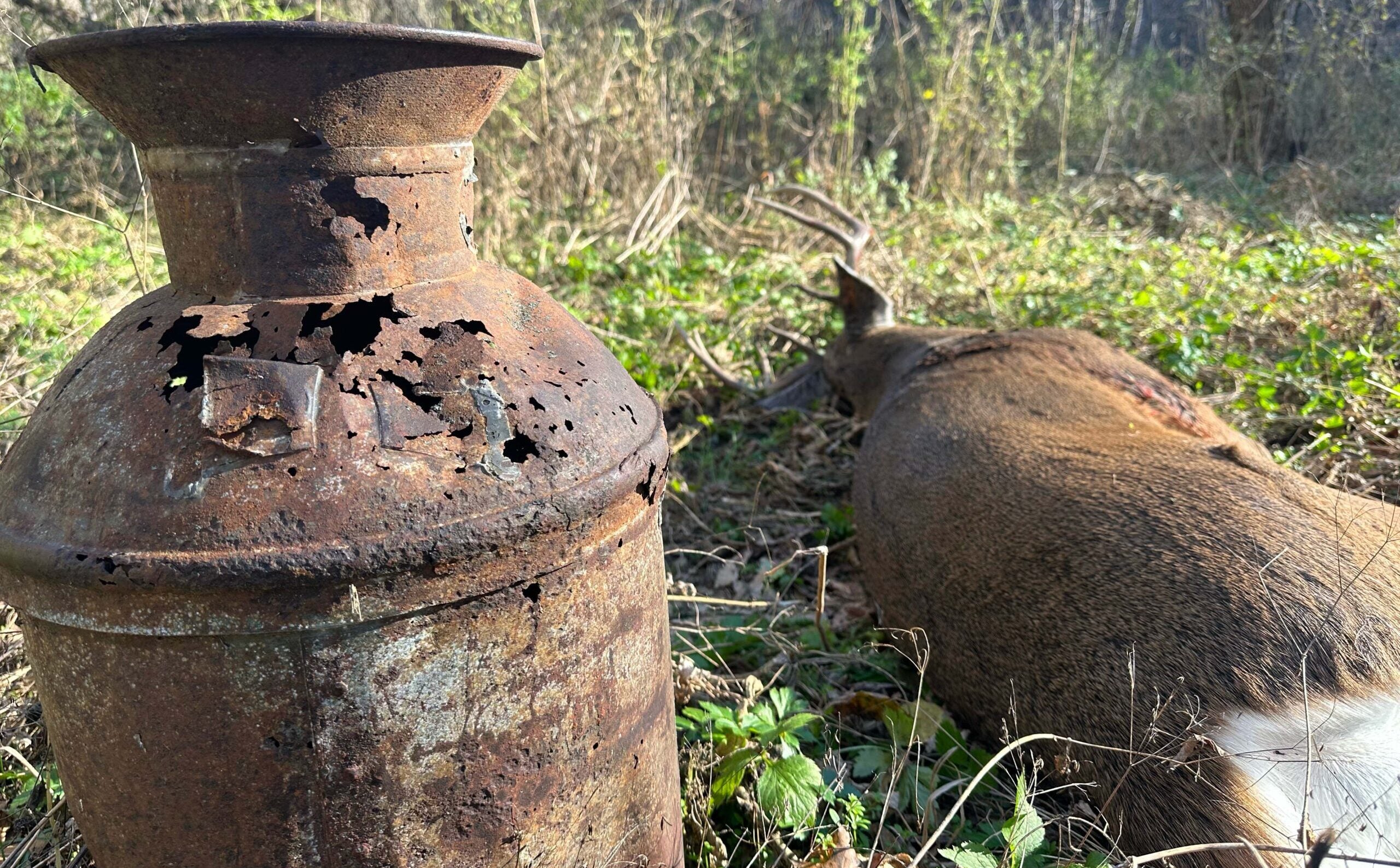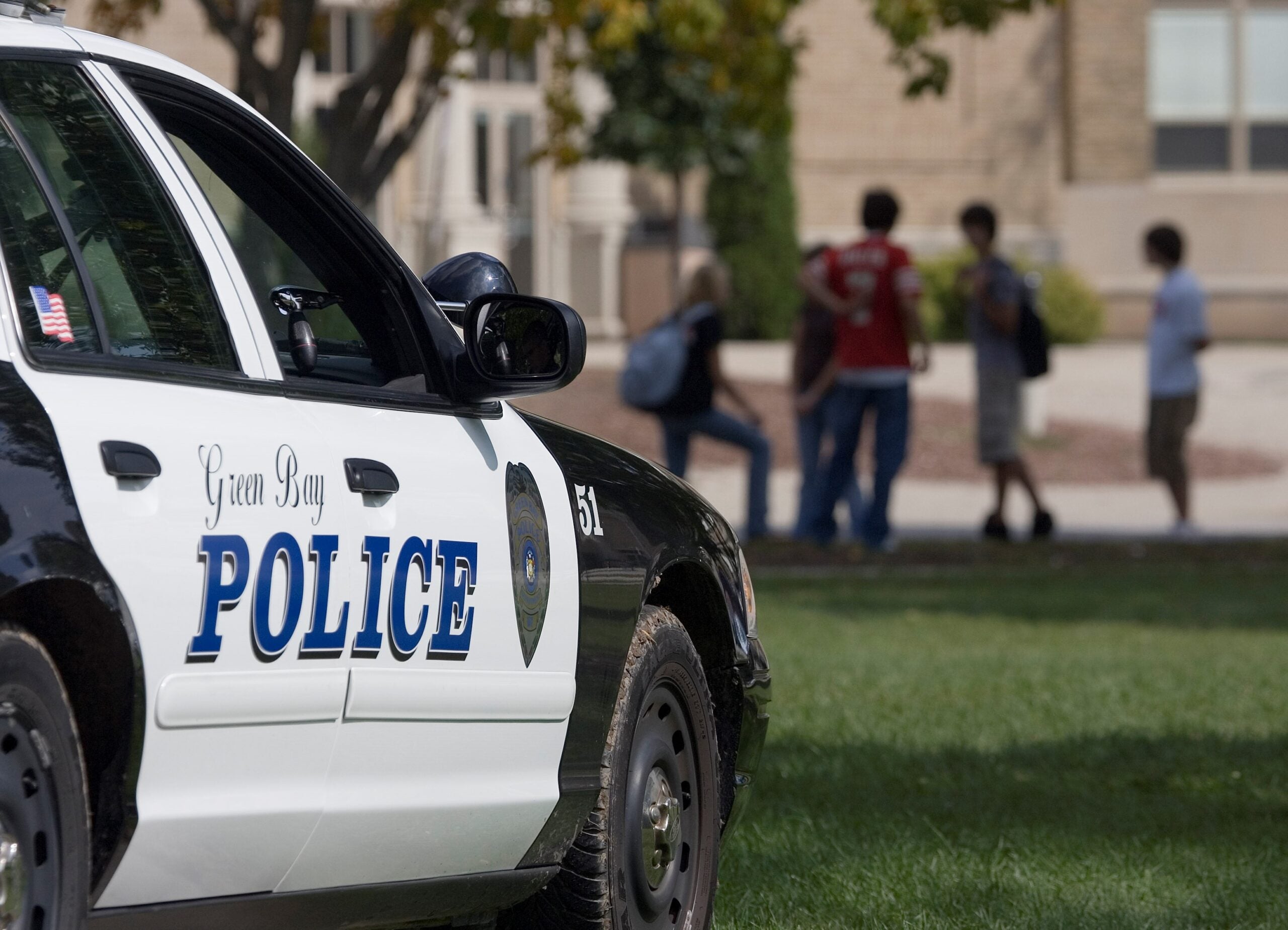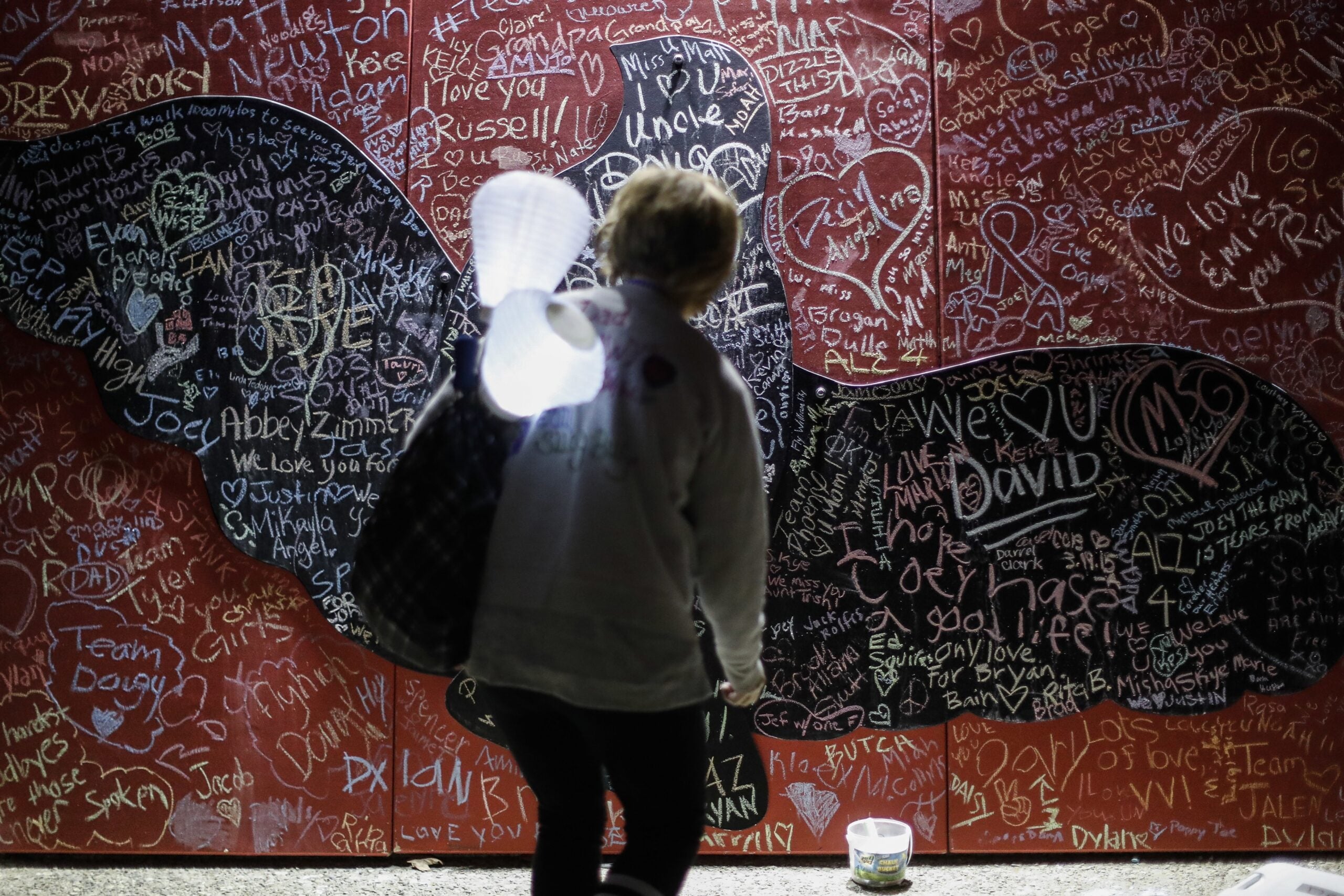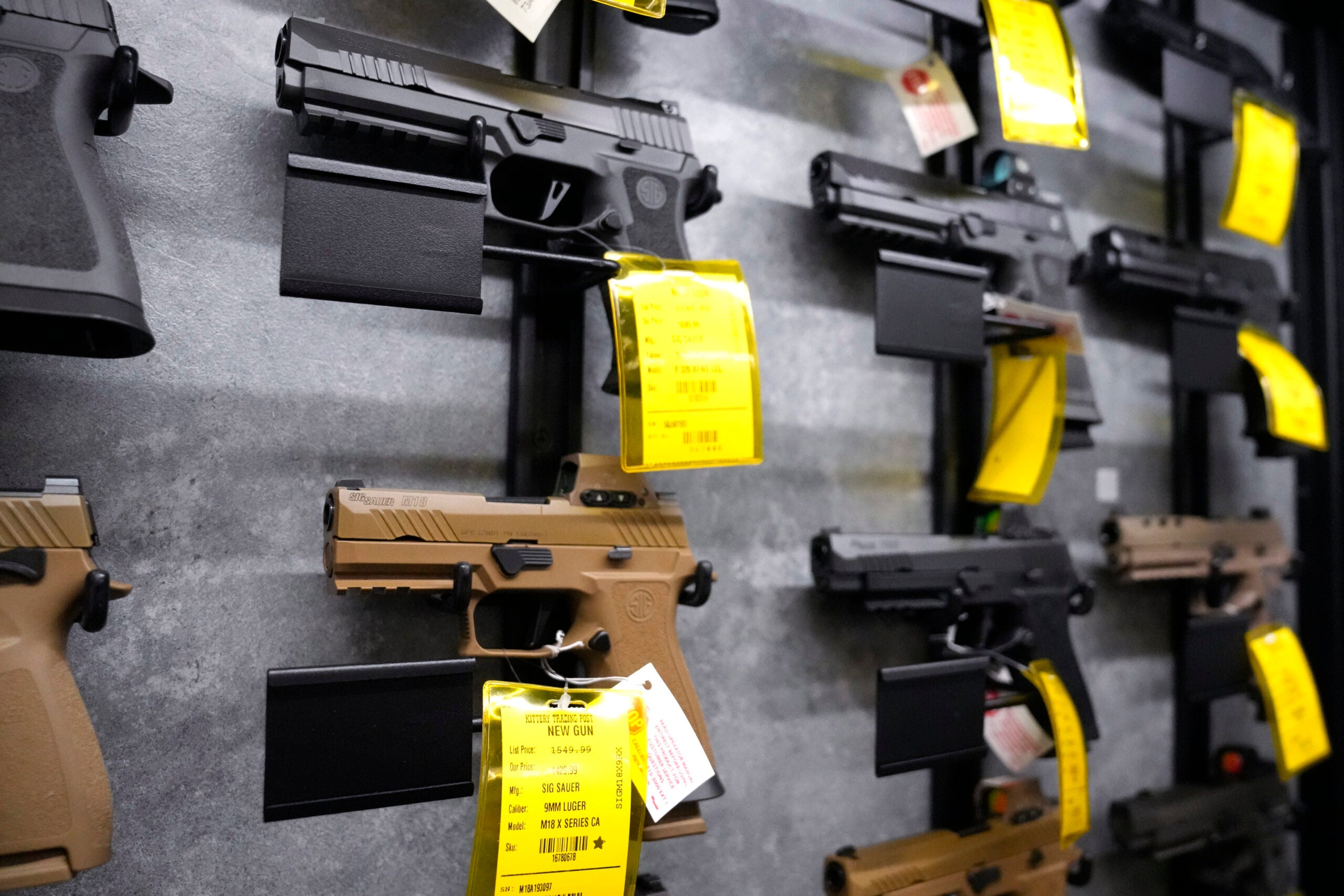On a sunny afternoon in September, several members of the Wisconsin chapter of the Liberal Gun Club are visiting the Columbia County Gun Range in Poynette.
Although the Packers are playing, there’s a good turnout at the range, with people firing several different rifles and handguns.
While many of the shooters might be getting ready for hunting season, one man has tagged along with the gun club for a slightly different reason. He came because he wanted to know what it feels like to be around explosions.
News with a little more humanity
WPR’s “Wisconsin Today” newsletter keeps you connected to the state you love without feeling overwhelmed. No paywall. No agenda. No corporate filter.
He wasn’t looking for cheap thrills, but to get a sense for how he might react if he ever found himself near the frontlines in Ukraine with its war against Russian invasion.
“I wanted to see when there are explosions around me, how do I feel?” explained John, who requested to not use his real name in this story due to safety concerns. “Do I remain calm when I see a gun in proximity?”
John is from an East European country near Ukraine where he has many friends. He’s contemplating volunteering there — not as a soldier, but with humanitarian groups providing aid. John doesn’t have any experience with firearms and wanted to learn a little bit about them. So he tagged along with the Liberal Gun Club, which offers free gun education in the Madison area.
John said he has no intention of using a gun in Ukraine. But since he’ll be in a war zone, he wants to be prepared.
“It is kind of like packing a first aid kit when you are going for a hike, right? It’s just a precaution,” he said. “I don’t hope to use it.”
John appreciated the tutoring at the Columbia County range. He fired a few handguns and some assault rifles. He said he was surprised at how quickly he acclimated to the constant barrage of gunfire around him, but suspected the double layer of ear protection might have helped.
“I come into this training as someone who does not want to ever handle a gun. I’m not interested in buying a gun. I’m not interested in practicing shooting a gun,” John said. “I really just want to see how I perform in an environment where guns are nearby. I want to understand how guns work and how guns feel, and with that comes a big emphasis on or a big need and request for safety.”
Educational mission
Blake Alvarenga, president of the Wisconsin chapter of the Liberal Gun Club, has made it a mission to support gun education. He’s created a nonprofit, The Forward Initiative, to fund free gun safety and training classes.
He told WPR’s “Wisconsin Today” he strives to be inclusive to people of color, women, and LGBTQ+ people.
“We do a lot of messaging about how this education and firearm rights are for everyone, regardless of race, creed, gender, sexuality or lifestyle,” Alvarenga said. “And I do a lot of messaging and outreach to communities that are definitely underserved by the firearm education, firearm harm reduction community.”
The education happens in classrooms where people can handle unloaded weapons and with trips to gun ranges, where people can fire guns under the guidance of club members. Alvarenga sees education as a way of reducing gun violence, including suicides, which account for more than half of all gun deaths, according to the National Safety Council.
“Ignorance or abstinence from anything dangerous to you doesn’t necessarily make you any safer when you then encounter it later on (in) life — whether it’s firearms or drugs, etc.,” Alvarenga said. “I think education is one of the best medicines (for) any societal ill.”
The educational role is one that he thinks the government has abdicated.
“The state of Wisconsin doesn’t really put on free firearm safety classes. They’re not really taught in community centers or colleges, whether they’re technical or university level,” he said. “There’s been a really large divestment away from any kind of firearm education or firearm certification.”
Wisconsin Public Radio, © Copyright 2025, Board of Regents of the University of Wisconsin System and Wisconsin Educational Communications Board.

